Estimated reading time 4 minutes, 59 seconds.
As COVID-19 infection rates in Manitoba are spiking, a regional airline in the province has made sure it has the equipment that will allow it to move sick, infectious patients from remote communities to larger hospitals where they would be able to receive the proper care.
Keewatin Air now has Transport Canada’s approval to deploy four specially designed, adult-sized, single-patient isolation and transport units, called EpiShuttles. Keewatin, along with Alberta Health Services fixed-wing air ambulance, are the only Canadian services to have this equipment made by a Norwegian company available for use.
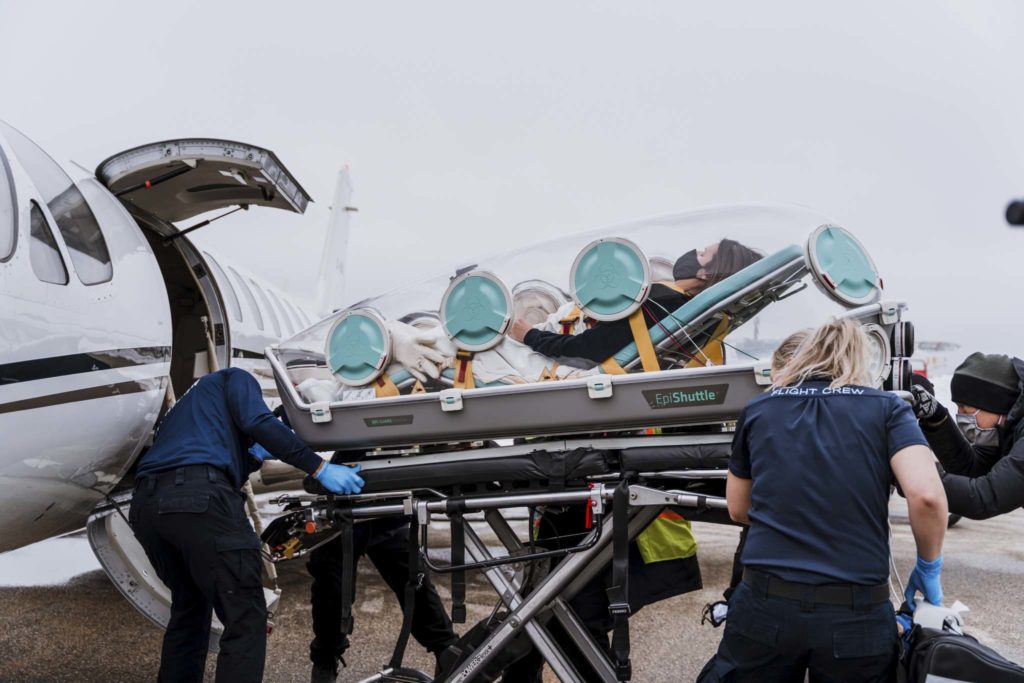
Keewatin Air is the sole medevac services provider for the entire territory of Nunavut and is also on the list of air carriers that can provide similar services in Manitoba when needed.
Wayne McLeod, president of Keewatin, said in March when the coronavirus was identified as a pandemic, the airline started looking at scenarios that would allow them to be able to transport infected patients safely if the need arose.
“We are always looking at how to make the transports better, safer, more efficient,” he said.
Keewatin is owned by Winnipeg-based Exchange Income Corp. (EIC), which also owns Calm Air, Perimeter Aviation and other regional airlines. Over time, the plan would be to make the units available for other planes and other members of the EIC family of airlines.
Keewatin took receipt of the units in May and has been working ever since to secure operational certification from Transport Canada.
To date, it is certified for use on Keewatin’s fleet of Pilatus PC-12 single-engine turboprop planes, and the company has submitted an application for certification on its Citation jets, which is awaiting Transport Canada approval.
Jason Kendall, in charge of aircraft maintenance for Keewatin, said the PC-12 is widely used in the north, where its short takeoff and landing capabilities make it able to service the smallest and remote communities where the airstrips are more modest.
But eventually, he said, it will certify other planes in the EIC airline family.
“We will be able to do mass evacuations with all four units on our ATRs and Dash 8s as well,” he said.
Right now, the company has one EpiShuttle stationed at Keewatin’s terminal in Iqaluit and three in Winnipeg.
On Friday, Keewatin staff along with hospital staff at the Health Sciences Centre’s simulation lab and Stretcher Service of Manitoba undertook a full trial run with a live actor in place of a real patient. They loaded and unloaded the unit from a plane to make sure all parties involved understood the correct protocols and how to use the equipment.
Melody Bishop, a member of Keewatin’s medevac team and a respiratory therapist, is training staff and emergency services personnel on how to use the EpiShuttle.
“The great thing about it is that the patient is completely isolated,” she said. “We can protect anyone outside from any diseases or pathogens the patient may have been exposed to.”
The units include forced air equipment providing air exchange at the same level used in hospital surgery rooms and six ports that allow health care professionals to administer whatever sort of medical intervention the patient requires.
Use of the EpiShuttle does not require the planes or the ambulances to undergo decontamination protocols.
The units cost about $100,000 each. Keewatin and EIC have not accessed any public sector financial assistance but have made the governments of Nunavut and Manitoba aware of the presence of the equipment.
The Norwegian company, Epiguard, first developed the EpiShuttle after the Ebola outbreak in 2014 when some Oslo University Hospital medical professionals working in Africa realized the logistical challenges in moving highly contagious patients.
There are only about 200 of the units in use around the world and according to McLeod. Keewatin, is the only commercial airline in the country that has purchased them.
“We wanted to be prepared,” McLeod said. “Right now it is this pandemic. In a few years from now who knows what the next one will be. We now have certifications in place and we are ready to go.”
Editor’s note: this article by Martin Cash originally appeared in the Winnipeg Free Press.
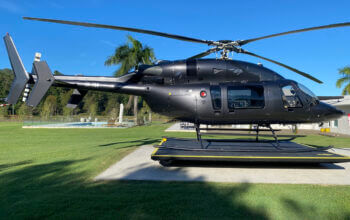



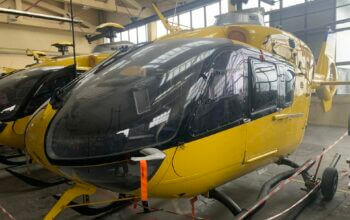
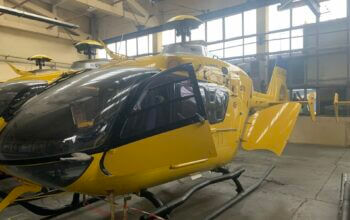
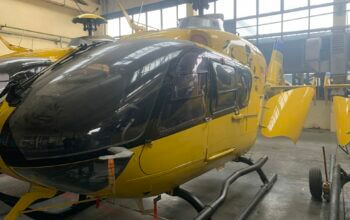
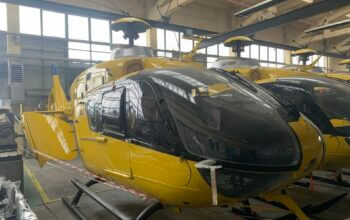

Great idea.